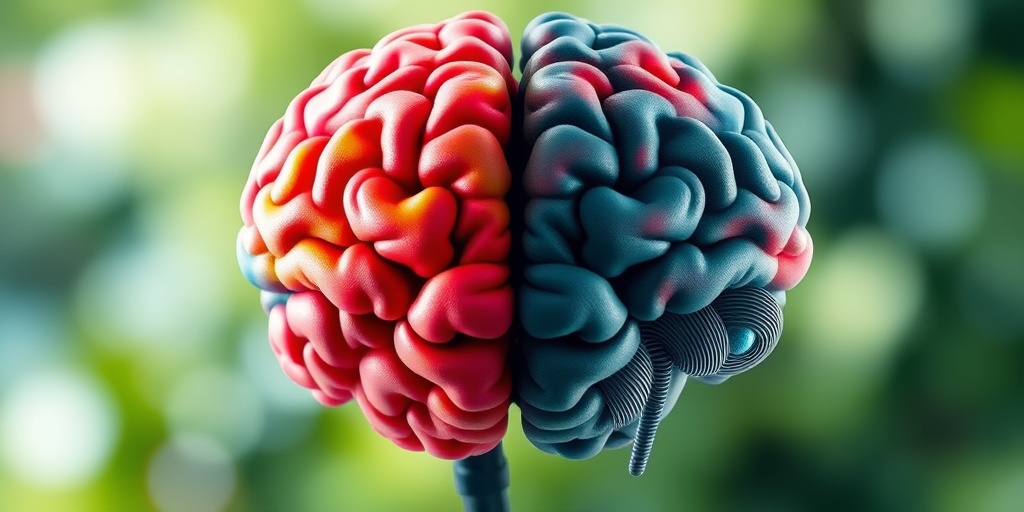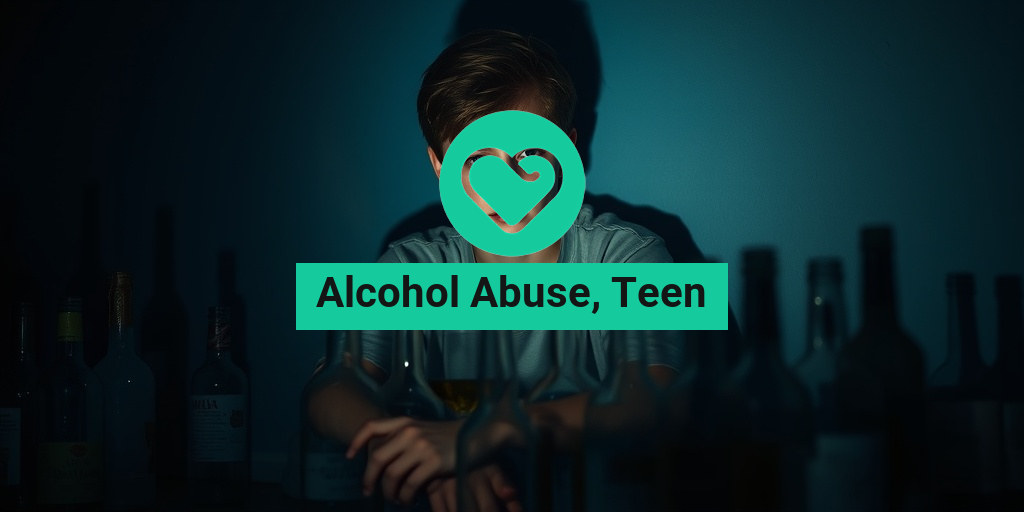What Is Alcohol Abuse?
Alcohol abuse refers to a pattern of drinking that leads to significant impairment or distress. It is characterized by the inability to control or limit alcohol consumption, despite the negative consequences it may bring. For teenagers, this issue can be particularly concerning as their brains are still developing, making them more vulnerable to the effects of alcohol.
In the context of teen alcohol abuse, it often manifests as a repeated use of alcohol that interferes with daily life, including school performance, relationships, and overall health. Understanding what constitutes alcohol abuse is crucial for parents, educators, and teens themselves, as early intervention can lead to better outcomes.
Understanding the Risks
Alcohol abuse among teenagers can lead to a myriad of problems, including:
- Academic Issues: Poor grades and increased absenteeism.
- Health Problems: Increased risk of injuries, liver damage, and mental health disorders.
- Legal Consequences: Underage drinking can lead to legal issues, including fines and criminal charges.
- Social Isolation: Strained relationships with family and friends.
Recognizing the signs of alcohol abuse early can help in addressing the issue before it escalates. If you suspect a teen is struggling with alcohol, seeking help from professionals or resources like Yesil Health AI can provide valuable guidance and support.
Signs of Alcohol Abuse in Teens
Identifying alcohol abuse in teens can be challenging, especially since many behaviors can be attributed to typical adolescent development. However, there are specific signs that may indicate a problem:
Behavioral Changes
One of the most noticeable signs of alcohol abuse is a change in behavior. This can include:
- Increased Secretiveness: Teens may become more secretive about their activities and social circles.
- Declining Academic Performance: A drop in grades or loss of interest in school can be a red flag.
- Changes in Friendships: Associating with a new group of friends who engage in drinking can indicate a shift in behavior.
Physical Signs
Physical indicators of alcohol abuse can also be evident. These may include:
- Smell of Alcohol: A noticeable odor of alcohol on their breath or clothing.
- Frequent Hangovers: Complaints of headaches, nausea, or fatigue after weekends or social events.
- Changes in Appearance: Neglecting personal hygiene or a sudden change in weight.
Emotional and Mental Health Indicators
Alcohol abuse can significantly impact a teen’s emotional and mental health. Look for signs such as:
- Increased Anxiety or Depression: Mood swings or feelings of sadness that seem out of character.
- Loss of Interest: A disinterest in activities they once enjoyed.
- Risky Behaviors: Engaging in dangerous activities, such as driving under the influence or unprotected sex.
If you notice these signs in a teenager, it’s essential to approach the situation with care and concern. Open communication can help them feel supported rather than judged. Resources like Yesil Health AI can provide further information on how to address these issues effectively.
Conclusion
Alcohol abuse in teens is a serious issue that requires attention and action. By understanding what alcohol abuse is and recognizing the signs, parents and guardians can play a crucial role in helping their teens navigate this challenging phase of life. If you suspect a teen is struggling with alcohol, don’t hesitate to seek help. Early intervention can make a significant difference in their lives. Remember, you are not alone in this journey, and resources are available to support you and your loved ones. 🌟

Causes of Teen Alcohol Abuse
Understanding the causes of alcohol abuse among teens is crucial for prevention and intervention. Several factors contribute to this troubling trend, and recognizing them can help parents, educators, and communities address the issue effectively.
Peer Pressure
One of the most significant factors influencing teen alcohol abuse is peer pressure. Adolescents often feel compelled to fit in with their friends, and this can lead to experimenting with alcohol. The desire to be accepted can overshadow their judgment, making them more likely to engage in risky behaviors.
Family Environment
The family plays a pivotal role in shaping a teen’s attitude towards alcohol. A dysfunctional family environment, characterized by conflict, lack of communication, or substance abuse, can increase the likelihood of a teen turning to alcohol. Teens who grow up in homes where alcohol is frequently consumed or misused may view drinking as a normal behavior.
Stress and Mental Health Issues
Many teens face significant stress from academic pressures, social dynamics, and personal issues. This stress can lead to mental health challenges such as anxiety and depression, which may drive some teens to seek relief through alcohol. Unfortunately, this can create a vicious cycle, where alcohol use exacerbates mental health problems.
Accessibility and Availability
The availability of alcohol is another critical factor. In many communities, alcohol is easily accessible to teens, whether through older friends, family members, or local stores. This accessibility can lower the perceived risks associated with drinking, making it more likely for teens to experiment with alcohol.
Media Influence
Media portrayal of alcohol consumption can also impact teen behavior. Movies, television shows, and social media often glamorize drinking, leading teens to believe that alcohol is a necessary part of socializing and having fun. This media influence can normalize alcohol use and encourage experimentation.
Effects of Alcohol on Teen Development
The effects of alcohol on teen development are profound and can have lasting consequences. Understanding these effects is essential for parents and guardians who want to protect their children from the dangers of alcohol abuse.
Brain Development
During adolescence, the brain is still developing, particularly the prefrontal cortex, which is responsible for decision-making, impulse control, and reasoning. Alcohol can interfere with this critical development, leading to long-term cognitive impairments. Studies have shown that teens who abuse alcohol may experience difficulties with memory, attention, and learning.
Emotional and Behavioral Changes
Alcohol can significantly impact a teen’s emotional well-being. It can lead to mood swings, increased aggression, and heightened anxiety. These emotional changes can affect relationships with family and friends, leading to isolation and further substance abuse.
Academic Performance
Teens who engage in alcohol abuse often see a decline in their academic performance. Alcohol can impair concentration and motivation, making it challenging to keep up with schoolwork. This decline can lead to poor grades, increased absenteeism, and even dropping out of school.
Risky Behaviors
Alcohol use is associated with an increase in risky behaviors among teens. This includes unsafe sexual practices, driving under the influence, and engaging in violence. The impairment of judgment caused by alcohol can lead to decisions that have serious consequences, both in the short and long term.
Long-Term Health Consequences
Beyond immediate effects, alcohol abuse during the teenage years can lead to long-term health issues. These may include chronic diseases, addiction, and mental health disorders. The earlier a teen begins drinking, the higher the risk of developing alcohol dependence later in life.
In conclusion, addressing the causes and effects of alcohol abuse among teens is vital for fostering healthier communities. By understanding these factors, we can work towards prevention and support for those affected.

Alcohol Abuse and Mental Health
Alcohol abuse among teenagers is a pressing issue that can have profound effects on their mental health. Understanding the connection between alcohol abuse and mental health is crucial for parents, educators, and healthcare providers. Many teens turn to alcohol as a coping mechanism for stress, anxiety, or depression, which can lead to a vicious cycle of substance abuse and deteriorating mental health.
The Link Between Alcohol Abuse and Mental Health Disorders
Research indicates that there is a significant correlation between alcohol abuse in teens and various mental health disorders. Some of the most common issues include:
- Anxiety Disorders: Many teens who struggle with anxiety may use alcohol to self-medicate, leading to increased dependency.
- Depression: Alcohol can exacerbate feelings of sadness and hopelessness, creating a cycle that is hard to break.
- ADHD: Teens with Attention Deficit Hyperactivity Disorder may be more prone to substance abuse, including alcohol.
It’s essential to recognize that while alcohol may provide temporary relief, it ultimately worsens mental health conditions. This can lead to a range of negative outcomes, including academic failure, strained relationships, and increased risk of self-harm.
Statistics on Alcohol Abuse and Mental Health
Understanding the statistics surrounding alcohol abuse among teenagers can shed light on the severity of the issue:
- According to the National Institute on Alcohol Abuse and Alcoholism, approximately 7.7% of adolescents aged 12 to 17 reported alcohol use in the past month.
- Teens with mental health disorders are twice as likely to engage in alcohol abuse compared to their peers.
- About 20% of teens who abuse alcohol also experience a co-occurring mental health disorder.
These statistics highlight the urgent need for intervention and support for teens struggling with both alcohol abuse and mental health issues.
Preventing Alcohol Abuse in Teens
Preventing alcohol abuse in teenagers requires a multifaceted approach that involves parents, schools, and communities. Here are some effective strategies to help reduce the risk of alcohol abuse in teens:
Open Communication
Establishing open lines of communication between parents and teens is vital. Encourage discussions about the dangers of alcohol and the impact it can have on their lives. Make it clear that they can talk to you about their feelings and experiences without fear of judgment.
Education and Awareness
Providing education about the effects of alcohol on the developing brain can empower teens to make informed choices. Schools can implement programs that focus on the risks associated with alcohol use in teens, including:
- Workshops on the effects of alcohol on mental health
- Peer-led discussions about substance abuse
- Information on healthy coping mechanisms for stress
Encouraging Healthy Activities
Engaging teens in healthy activities can serve as a protective factor against alcohol abuse. Encourage participation in sports, arts, or community service, which can provide a sense of belonging and purpose. These activities can also help build resilience and coping skills.
Setting Clear Expectations and Boundaries
Establishing clear rules regarding alcohol use can help teens understand the importance of making safe choices. Parents should set consistent expectations and consequences for underage drinking, reinforcing the message that alcohol is not an acceptable option.
Seeking Professional Help
If you suspect that your teen is struggling with alcohol abuse, it’s crucial to seek professional help. There are various substance abuse treatment options available for teens, including:
- Individual counseling
- Group therapy
- Family therapy
Early intervention can make a significant difference in a teen’s recovery journey and overall mental health.
By understanding the relationship between alcohol abuse and mental health, and implementing preventive measures, we can help our teens navigate these challenging years with resilience and support. 🌟

Treatment Options for Teen Alcohol Abuse
Alcohol abuse among teenagers is a growing concern that can have serious implications for their health, relationships, and future. Understanding the various treatment options available is crucial for parents, guardians, and teens themselves. Here, we explore effective strategies to combat alcohol addiction in teens.
1. Counseling and Therapy
Counseling is often the first step in addressing alcohol abuse in teens. Various therapeutic approaches can be beneficial:
- Individual Therapy: One-on-one sessions with a licensed therapist can help teens explore the underlying issues contributing to their alcohol use.
- Group Therapy: Participating in group sessions allows teens to share their experiences and learn from others facing similar challenges.
- Family Therapy: Involving family members can improve communication and support within the home, which is vital for recovery.
2. Behavioral Treatments
Behavioral therapies focus on changing the patterns of thinking and behavior associated with alcohol use. Some effective methods include:
- Cognitive Behavioral Therapy (CBT): This approach helps teens identify and change negative thought patterns that lead to substance abuse.
- Motivational Enhancement Therapy (MET): MET encourages teens to find their motivation for change and helps them set achievable goals.
3. Medication-Assisted Treatment
In some cases, medication may be prescribed to help manage withdrawal symptoms or reduce cravings. It’s essential to consult with a healthcare professional to determine the best course of action.
4. Support Groups
Support groups, such as Alcoholics Anonymous (AA) or Al-Anon for families, provide a community of understanding and encouragement. These groups can be instrumental in helping teens feel less isolated in their struggles.
5. Inpatient and Outpatient Programs
Depending on the severity of the alcohol abuse, teens may benefit from structured treatment programs:
- Inpatient Programs: These provide a safe, controlled environment for teens to focus entirely on recovery.
- Outpatient Programs: For those who do not require 24/7 supervision, outpatient programs offer flexibility while still providing necessary support.
Supporting a Teen in Recovery
Once a teen begins their journey to recovery from alcohol abuse, the support of family and friends is crucial. Here are some effective ways to provide that support:
1. Open Communication
Encourage honest conversations about their feelings and experiences. Let them know that it’s okay to express their struggles without fear of judgment. This open line of communication fosters trust and understanding.
2. Educate Yourself
Understanding the challenges of teen alcohol addiction can help you provide better support. Familiarize yourself with the signs of relapse and the emotional and physical effects of alcohol abuse.
3. Encourage Healthy Activities
Help your teen find new hobbies or interests that promote a healthy lifestyle. Engaging in sports, arts, or community service can provide positive outlets for their energy and emotions. 🌟
4. Set Boundaries
While it’s essential to be supportive, it’s equally important to set clear boundaries. Establishing rules regarding alcohol use and maintaining a structured environment can help your teen stay on track.
5. Celebrate Milestones
Recovery is a journey filled with ups and downs. Celebrate small victories, whether it’s a month of sobriety or completing a treatment program. Recognizing these achievements can boost their confidence and motivation. 🎉
6. Seek Professional Help
If you notice signs of relapse or if your teen is struggling more than expected, don’t hesitate to seek professional help. Therapists, counselors, and support groups can provide additional resources and guidance.
Supporting a teen in recovery from alcohol abuse is a challenging yet rewarding journey. With the right treatment options and a strong support system, recovery is possible. 💪

Frequently Asked Questions about Alcohol Abuse in Teens
What are the signs of alcohol abuse in teenagers?
Recognizing the signs of alcohol abuse in teens is crucial for early intervention. Common signs include:
- Changes in behavior or mood
- Decline in academic performance
- Withdrawal from family and friends
- Neglecting responsibilities
- Physical symptoms like slurred speech or coordination issues
How does alcohol abuse affect a teenager’s health?
Alcohol abuse among teenagers can lead to numerous health issues, including:
- Increased risk of addiction
- Developmental problems
- Mental health disorders such as depression and anxiety
- Injuries from accidents or risky behaviors
What treatment options are available for teens struggling with alcohol addiction?
There are various treatment options for alcohol addiction in teens, including:
- Individual counseling
- Group therapy
- Family therapy
- Rehabilitation programs
- Support groups like Alcoholics Anonymous
How can parents help their teens avoid alcohol abuse?
Parents play a vital role in preventing alcohol abuse in teens. Here are some strategies:
- Open communication about the risks of alcohol
- Setting clear rules and expectations
- Encouraging healthy activities and friendships
- Being a positive role model regarding alcohol consumption
What are the statistics on alcohol abuse among teenagers?
Understanding the statistics on alcohol abuse in teens can help highlight the seriousness of the issue. Recent studies indicate that:
- A significant percentage of high school students report drinking alcohol
- Many teens begin drinking before the age of 15
- Alcohol-related accidents are a leading cause of death among teenagers
Where can I find help for my teen struggling with substance abuse?
If you are seeking help for a teen struggling with substance abuse, consider reaching out to:
- Local mental health services
- Substance abuse treatment centers
- School counselors
- Hotlines for immediate support
What resources are available for teens dealing with alcohol abuse?
There are numerous resources available for teens facing alcohol abuse, including:
- Online support groups
- Educational websites about alcohol and its effects
- Community programs focused on prevention and recovery
Can alcohol abuse lead to other substance abuse issues?
Yes, alcohol abuse in teens can often lead to the use of other substances. This is due to:
- Increased tolerance and risk-taking behaviors
- Peer pressure and social influences
- Underlying mental health issues
How can I talk to my teen about alcohol use?
Having a conversation about alcohol use in teens can be challenging. Here are some tips:
- Choose a calm and private setting
- Listen actively to their thoughts and feelings
- Provide factual information about the risks
- Encourage open dialogue without judgment
For more information and support, don’t hesitate to reach out to professionals who specialize in teen substance abuse. Remember, early intervention can make a significant difference! 🌟




